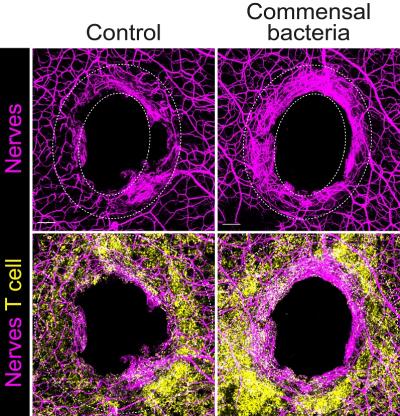If you can carry out research that supports program objectives of NIAID’s Division of Microbiology and Infectious Diseases (DMID), consider submitting a proposal through the 2023 NIAID Omnibus Broad Agency Announcement (BAA) contract solicitation.
DMID will use this BAA to advance the research and development of promising candidate vaccines, therapeutics, and diagnostics for biodefense, emerging infectious diseases, and pandemic preparedness.
As we summarize below, the 2023 BAA covers four distinct research areas. You may respond to one, any combination of, or all the research areas. For each research area, be sure to present separate, detailed technical and business proposals designed to meet the objectives described.
For all four research areas:
- NIAID Points of Contact: Direct inquiries to
- Swee L. Teo, Contracting Officer, at teosl@niaid.nih.gov or 240-669-5173
- Ebony Taylor, Contract Specialist, at ebony.taylor@nih.gov or 240-292-0668
- Performance Period: Not to exceed 5 years (base plus options)
- Proposal Submission: Online through the electronic Contract Proposal Submission (eCPS) website
Research Area 001: Development of Vaccine Candidates for Biodefense and Emerging Infectious Diseases
- Description: Supports advancing vaccine candidates, technologies, and platforms that could be deployed against agents that include category A, B, and C NIAID Emerging Infectious Diseases and Pathogens.
- Number of Awards, Total Costs: For fiscal year (FY) 2024, NIAID estimates it will award up to $12.8 million total for the non-severable base period of five or six cost-reimbursement type contracts across research areas 001, 002, and 004.
- Due Date: April 11, 2023, by 3 p.m. Eastern Time.
Research Area 002: Development of Therapeutic Candidates for Biodefense, Antimicrobial Resistant (AMR) Infections, and Emerging Infectious Diseases
- Description: Supports the development of promising new therapeutics to address infections and diseases caused by NIAID Emerging Infectious Diseases and Pathogens (including category A, B, and C priority pathogens) and selected bacterial and fungal pathogens identified in the CDC 2019 Antibiotic Resistance Threats in the United States report.
- Number of Awards, Total Costs: For FY 2024, NIAID estimates it will award up to $12.8 million total for the non-severable base period of five or six cost-reimbursement type contracts across research areas 001, 002, and 004.
- Due Date: April 11, 2023, by 3 p.m. Eastern Time.
Research Area 003: The Antiviral Program for Pandemics (APP): Development of Antivirals for RNA Viral Families of Pandemic Potential
- Description: Supports the development of antivirals as described in the Antiviral Program for Pandemics. NIAID encourages proposals to develop safe and effective antivirals to combat SARS-CoV-2, the virus that causes COVID-19, as well as to build sustainable platforms for targeted drug discovery and development of a robust pipeline of antivirals against viruses with pandemic potential.
- Number of Awards, Total Costs: For FY 2024, NIAID estimates it will award up to $3.5 million total for the non-severable base period of one cost-reimbursement type contract.
- Due Date: March 13, 2023, by 3 p.m. Eastern Time.
Research Area 004: Development of In Vitro Diagnostics for Biodefense, AMR Infections, and Emerging Infectious Diseases
- Description: Supports the development of promising diagnostics technologies for detection of signatures from biothreat pathogens and pathogens causing emerging, reemerging, and AMR infectious diseases, and for pandemic preparedness.
- Number of Awards, Total Costs: For FY 2024, NIAID estimates it will award up to $12.8 million total for the non-severable base period of five or six cost-reimbursement type contracts across research areas 001, 002, and 004.
- Due Date: April 11, 2023, by 3 p.m. Eastern Time.
Find complete details in the solicitation itself as well as any amendments issued since this article was published.


